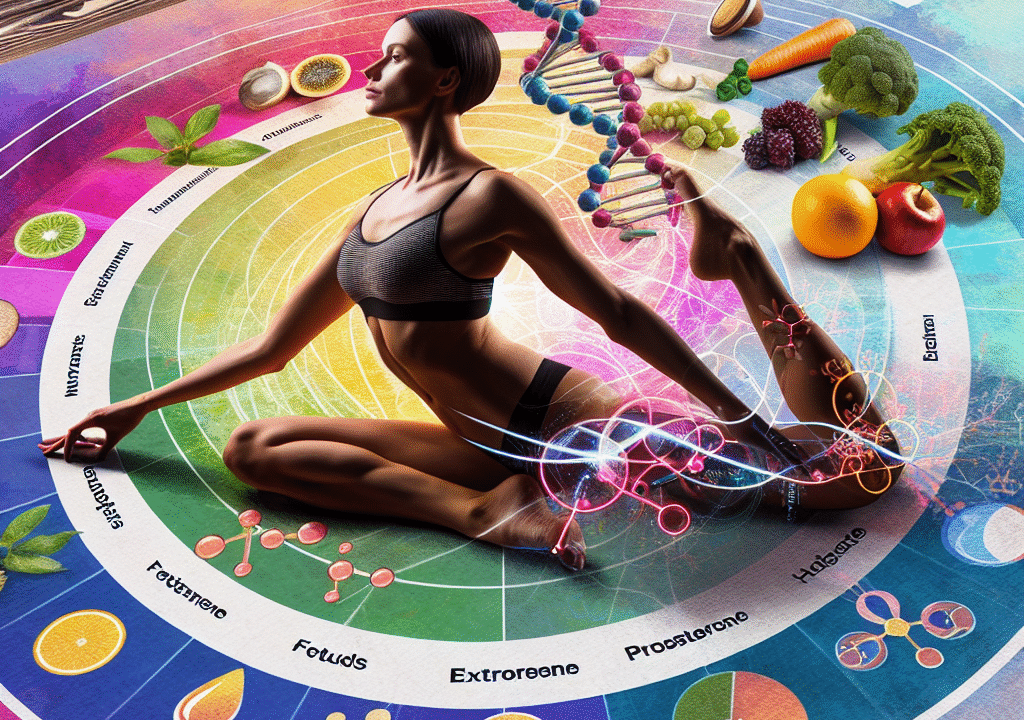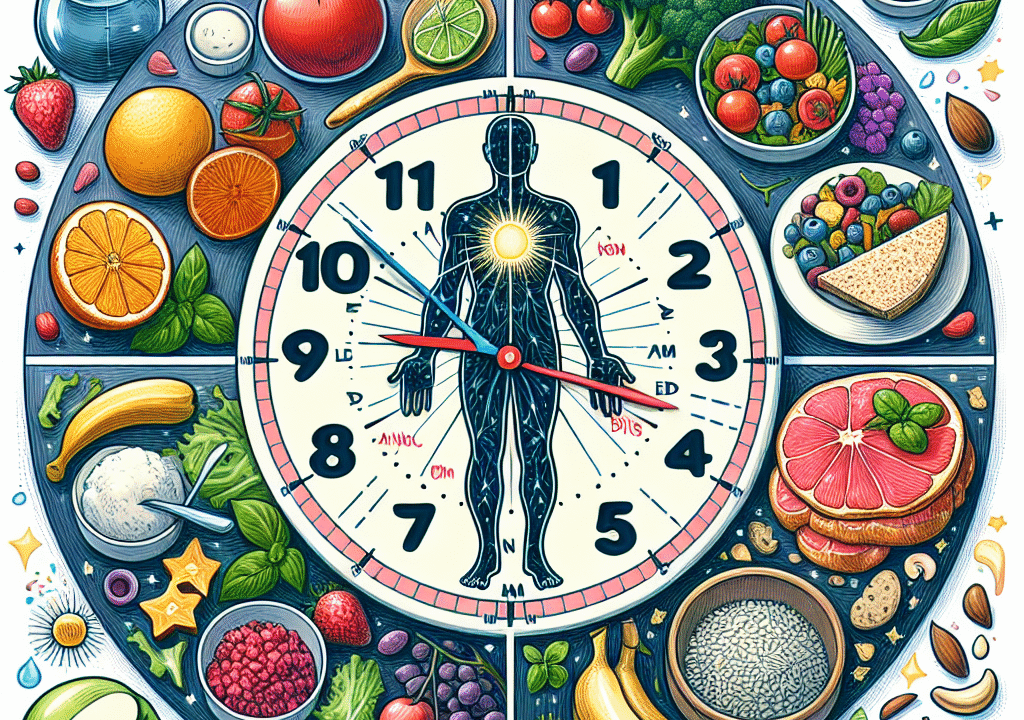The Micronutrient Map: Preventing Plant-Based Deficiencies Before They Start
As more people adopt plant-based diets for their health, sustainability, and ethical benefits, understanding the nutritional requirements of this lifestyle becomes increasingly important. While fruits, vegetables, legumes, and grains are rich in fiber, antioxidants, and essential nutrients, there are several vitamins and minerals that can be more challenging to obtain solely from plant sources.
That’s where the Micronutrient Map comes in — a comprehensive guide to identifying common nutrient gaps in vegetarian and vegan diets and learning how to prevent deficiencies before they impact your well-being.
Why Micronutrients Matter for Plant-Based Eaters
Micronutrients — vitamins and minerals needed in small amounts — are crucial for supporting energy, immunity, cognition, and your body’s metabolic functions. Research published in the American Journal of Clinical Nutrition shows that approximately 20% of vegetarians could be at risk for deficiencies in key micronutrients such as vitamin B12, iron, vitamin D, and omega-3 fatty acids.
“Micronutrients might be small, but their impact is powerful,” says Dr. Brenda Davis, registered dietitian and co-author of Becoming Vegan. “Unchecked deficiencies can lead to chronic fatigue, reduced immune function, and in severe cases, long-lasting neurological damage.”
While plant-based diets typically provide enough macronutrients like carbohydrates, fats, and protein, micronutrients require more thoughtful planning.
Key Micronutrients to Focus On in a Plant-Based Diet
Vitamin B12 – Crucial for Energy and Nerve Health
Vitamin B12 plays a vital role in red blood cell production and nervous system health. Unfortunately, this vitamin is not naturally found in unfortified plant foods.
Plant-Based B12 Sources:
– Fortified nondairy milk (soy, oat, almond), fortified cereals, and nutritional yeast
– B12 supplements (cyanocobalamin is the most stable form)
Just one tablespoon of fortified nutritional yeast can provide more than 100% of your daily B12 needs.
Important Reminder: B12 deficiency can lead to irreversible nerve damage. Supplementation is strongly recommended for all vegans.
For detailed supplement advice, check out a reliable resource like eDrugstore.com’s guide to choosing B12 supplements.
Iron – Essential for Oxygen Transport and Energy
Iron helps transport oxygen throughout the body and supports energy levels. Plant-based iron (non-heme iron) is less readily absorbed than the animal-derived heme iron.
Plant-Based Iron Sources:
– Lentils, chickpeas, black beans, tofu, quinoa, pumpkin seeds, spinach
Boosting Iron Absorption:
– Combine iron-rich foods with vitamin C sources such as strawberries, bell peppers, or broccoli
– Avoid tea or coffee with meals as they contain polyphenols that hinder absorption
Statistic: Up to 30% of premenopausal women following plant-based diets may experience low iron levels.
Omega-3 Fatty Acids – Supporting Brain and Heart Health
Omega-3 fatty acids are vital for cognitive function and cardiovascular health. While animal products provide EPA and DHA directly, plant-based diets offer ALA (alpha-linolenic acid), which the body converts inefficiently to EPA and DHA.
Top Plant-Based Omega-3 Sources:
– Chia seeds, flaxseeds, hemp seeds, walnuts
Smart Supplement Strategy:
– Choose an algae-based DHA/EPA supplement for a direct, vegan-friendly source of these critical fats
“Supplementing with DHA ensures you get the brain health benefits without relying on inefficient ALA conversion,” notes Dr. Joel Fuhrman, a physician and nutritional researcher.
Vitamin D – The Immune and Mood Enhancer
Vitamin D supports calcium absorption, regulates the immune system, and plays a role in mood. Most natural dietary sources are animal-based, making supplementation important for vegans — especially in colder months with less sun exposure.
Vegan-Friendly Vitamin D Sources:
– Fortified plant-based milk and cereals
– Sensible sun exposure (10 to 30 minutes several times weekly)
– Lichen-based vegan D3 supplements
According to NIH reports, over 41% of U.S. adults may have insufficient vitamin D levels, with an even higher rate among those who avoid animal products.
One cup of fortified almond milk can deliver up to 25% of your daily D intake.
Iodine – Key for Thyroid and Metabolism Regulation
Iodine is essential for synthesizing thyroid hormones, which regulate metabolism and energy levels. Although some sea vegetables contain iodine, their levels can be highly inconsistent.
Reliable Plant-Based Iodine Options:
– Iodized salt (used moderately)
– Seaweed varieties such as nori or dulse (in limited, controlled amounts)
Advanced Tip: Consider a daily supplement containing 150 micrograms of iodine if your diet lacks consistency in iodine-rich foods.
Zinc – Supporting Immunity and Repair
Zinc contributes to immune defense, wound healing, and ideal cell function. While available in plant foods, zinc from these sources is less bioavailable due to the presence of phytates — compounds that hinder absorption.
Zinc-Rich Plant Foods:
– Pumpkin seeds, lentils, oats, chickpeas, cashews
How to Boost Zinc Absorption:
– Soak, sprout, or ferment legumes and grains to reduce phytate content
Example: Soaking lentils overnight can improve zinc availability by up to 30%.
Calcium – Strengthening Bones and Teeth
Calcium is vital for strong bones, healthy teeth, and proper nerve and muscle function. Though dairy is a traditional calcium source, numerous plant-based options provide the mineral when included mindfully.
Calcium-Rich Vegan Foods:
– Fortified plant milks (soy or almond), tofu set with calcium sulfate, bok choy, kale, tahini, almonds
Helpful Hint: Rotate leafy greens and prioritize those like bok choy and kale, which have lower oxalate levels that enhance calcium absorption.
Did you know? Some fortified soy milk can provide more calcium per cup than cow’s milk.
Building Your Personalized Micronutrient Map
Once you’ve identified key nutrients to monitor, it’s time to create your unique Micronutrient Map — a plan that ensures your daily meals are nutrient-dense and well-balanced.
Strategies for Success:
– Embrace variety: Rotate whole grains, legumes, nuts, and colorful vegetables to cover a broader range of nutrients
– Include fortified foods and supplements: Particularly prioritize vitamin B12, vitamin D, and omega-3s from algae-derived EPA/DHA
– Track your intake: Use free tools like Cronometer to analyze meals and identify any micronutrient gaps
– Check your levels: Schedule regular blood work to monitor key health markers, including iron, B12, and vitamin D
Thriving on a Plant-Based Diet with Confidence
A well-planned plant-based diet can fully support vibrant health — and even surpass traditional diets in many ways — when approached mindfully. Building your Micronutrient Map is a proactive step toward ensuring balance, energy, and optimal wellness.
Start today by asking yourself:
– Can I mix chia seeds into breakfast oatmeal or smoothies?
– Am I using iodized salt instead of sea salt in my dishes?
– Have I chosen a reliable source of vitamin B12?
Small tweaks can make a major difference. With intentional choices and consistent habits, your plant-powered lifestyle can be full of energy and longevity.
Share and Support
Have you built your personal Micronutrient Map? Share your favorite fortified foods, go-to supplements, and plant-based recipe ideas. Let’s support one another on the journey to vibrant, empowered health — one nutrient at a time.
References
1. Pawlak, R., et al. “How prevalent is vitamin B12 deficiency among vegetarians?” Nutrition Reviews, 2013.
2. Haider, L.M., et al. “Iron status of vegetarians and vegans: A review.” Critical Reviews in Food Science and Nutrition, 2018.
3. National Institutes of Health, Office of Dietary Supplements. “Vitamin D: Fact Sheet for Health Professionals,” 2020.
4. Weaver, C.M. “Calcium in diet: Friend or foe?” Advances in Nutrition, 2017.
For more detailed guides on supplements and wellness tools, visit eDrugstore.com.


